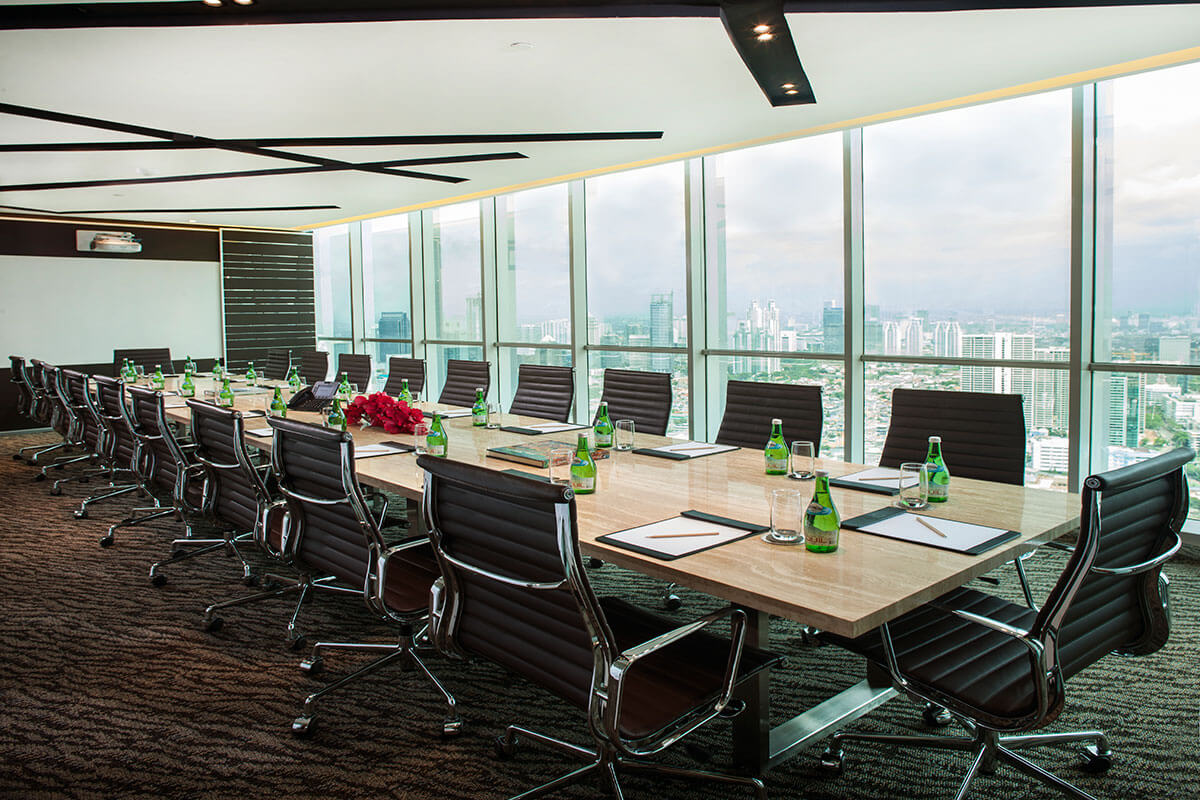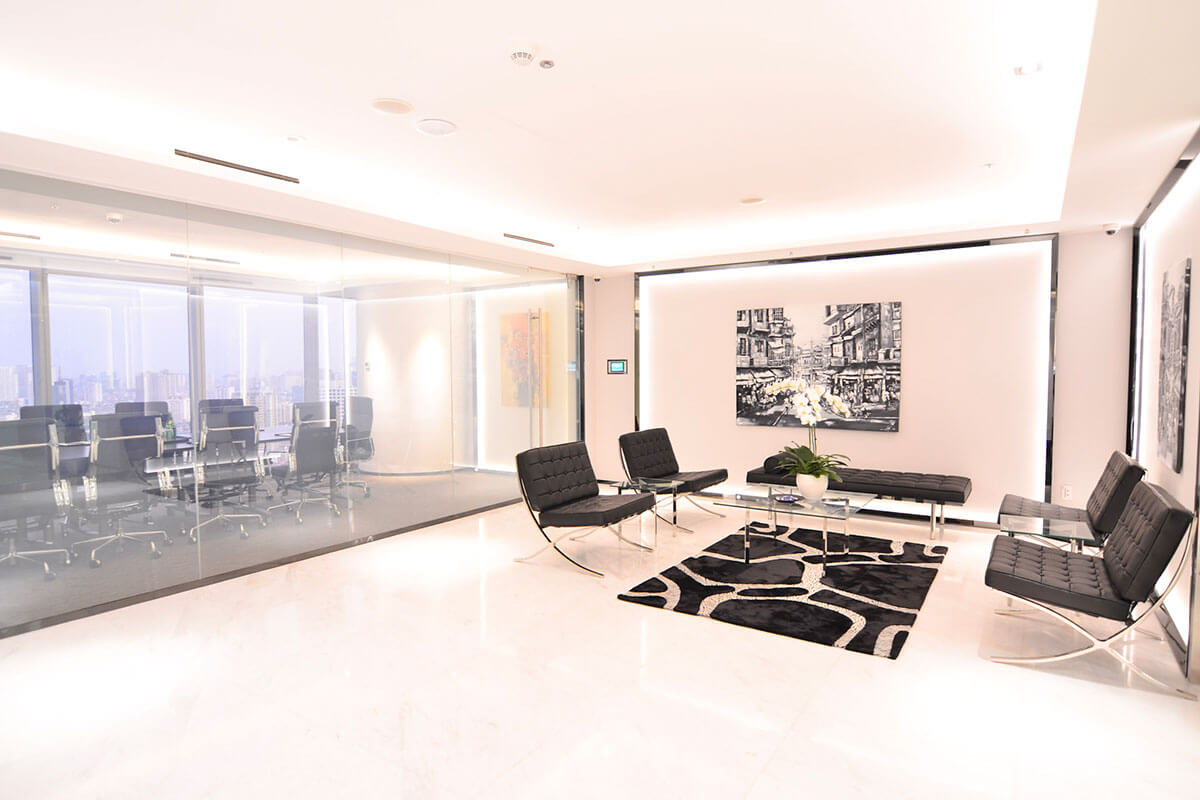More Companies Turn to Serviced Offices
Serviced office companies remain optimistic about strong demand this year due to increased inquiries and new sign-ups, but are still refraining from expanding in Jakarta despite the encouraging signs.
Indonesia’s political and economic situation is steadily improving after the successful presidential election last year, although international surveys still indicate that Indonesia is the most corrupt country in Asia. This is part of the reason investors are still refraining from giving their full commitment to the country.
Unlike the conventional office market, which depends on full commitment by investors for new take-ups – the serviced office market targets investors who are testing the waters, or representative offices in Jakarta.
For CEO SUITE, “The demand for serviced offices remains strong. And even during the crisis, we managed to grow,” says Mee Kim, President of CEO SUITE. They attribute their growth to a workable concept that is able to meet the requirements of companies whether they are expanding or downsizing; new set-ups or companies who just need to first test the waters.
While the conventional office market might be shaken by bomb blasts such as those at J.W. Marriott Hotel, and at the Australian Embassy, serviced offices might benefit from such incidents.
With many offices near the Australian Embassy damaged in the blast, frantic executives had no other choices but to relocate their operations to serviced offices last year.
“We are very flexible in rental terms so companies do not need to commit themselves to long-term contracts with us. In addition, we provide them with various services, including secretarial work and legal limit processing needed to set up an office,” said Lena Thong, the center manager of the Plaza Business Centre.
Mee Kim of CEO SUITE emphasized the strength of her company as one who provides more than mere office space. It is the range of comprehensive services inherent in their directories of services that distinguishes their company from others. Their assistance enables both newcomers and established businesses to penetrate the Indonesian market fairly rapidly.
Aside from providing general guidance, serviced offices are usually tied up with affiliated companies, including law firms and translation companies to assist their clients. This one-stop-service concept constitutes one of the growth factors in the industry.
Rather than finding their own office space and investing money in buying furniture, businesses with up to eight employees can often take advantage of a serviced office. By making use of the infrastructure of a serviced office, businesses have no further need to spend more money and energy finding an office and hiring secretaries, cleaning and security staff.
“The initial capital investment for an integrated back-office and IT system may cost a lot for a start-up company if they choose to own or rent their own office. In addition, the unproductive space used for the reception, pantry and meeting room can reach up to 30 percent of the rented space,” said Lena.
As the Indonesian economy steadily improves, many players in the serviced office sector are expressing optimism on the outlook of the sector. However, most of these players are still not looking at any expansion plans.
In spite of strong demand, Mee Kim said CEO SUITE would not be expanding its space beyond the Jakarta Stock Exchange Building and Wisma GKBI in Jakarta. Instead, the company will expand regionally in Beijing at the LG Beijing Tower, this coming August.
“Many of our clients want to do business in China. That is why we have decided to expand to China,” explains Mee Kim.
While all players in the serviced office sector do not refute the strong demand in their industry, their reluctance to expand their operations in Indonesia could be an indicator that the demand in the country is still not as optimistic as compared to other countries in the region.
The country’s serviced office sector is still heavily reliant on multinationals and joint venture companies. Domestic companies on average make up only 20 percent of their clientele.
And accordingly to Mee Kim, the local market has yet been convinced that serviced offices, particularly CEO SUITE, can be really cost-effective.
“The mentality among Asian businesses, including Indonesian ones, is that they want to own their own space and personnel. In more recent years however, I see the mentality slowly changing. In Japan, for instance, 99 percent of the clientele of serviced offices are local companies,” said Mee Kim.
Like all industries in all markets, the price factor remains a sensitive issue, especially for local businesses, particularly those in small and medium-scale industries. The fees for ad-hoc secretarial work and other services are still considered high for most.
“What makes our services seem expensive is that our personalized services to clients are delivered and maintained at premium quality,” Lena said.
While the market for serviced office is still not as vibrant among domestic companies, their other concept of virtual offices has received pretty strong responses from local businesses.
With fees ranging from Rp. 500,000.00 to Rp. 1 million, local companies can be allocated an address, telephone and fax numbers from a serviced office company to use as their own for their businesses. In addition, the receptionist transfers all incoming calls of theirs to any phone they desire.
Undoubtedly, the serviced office industry will need a more creative concept to attract the local clients. Otherwise, their strong dependence on multinationals and joint venture companies could only mean limited demand in Indonesia, and it shall not come as surprising that most operators choose to plant their new centers outside the country.
Apr 26, 2013




 Bahasa
Bahasa
 日本語
日本語
 한국어
한국어
 ไทย
ไทย
 tiếng Việt
tiếng Việt
 中文
中文






